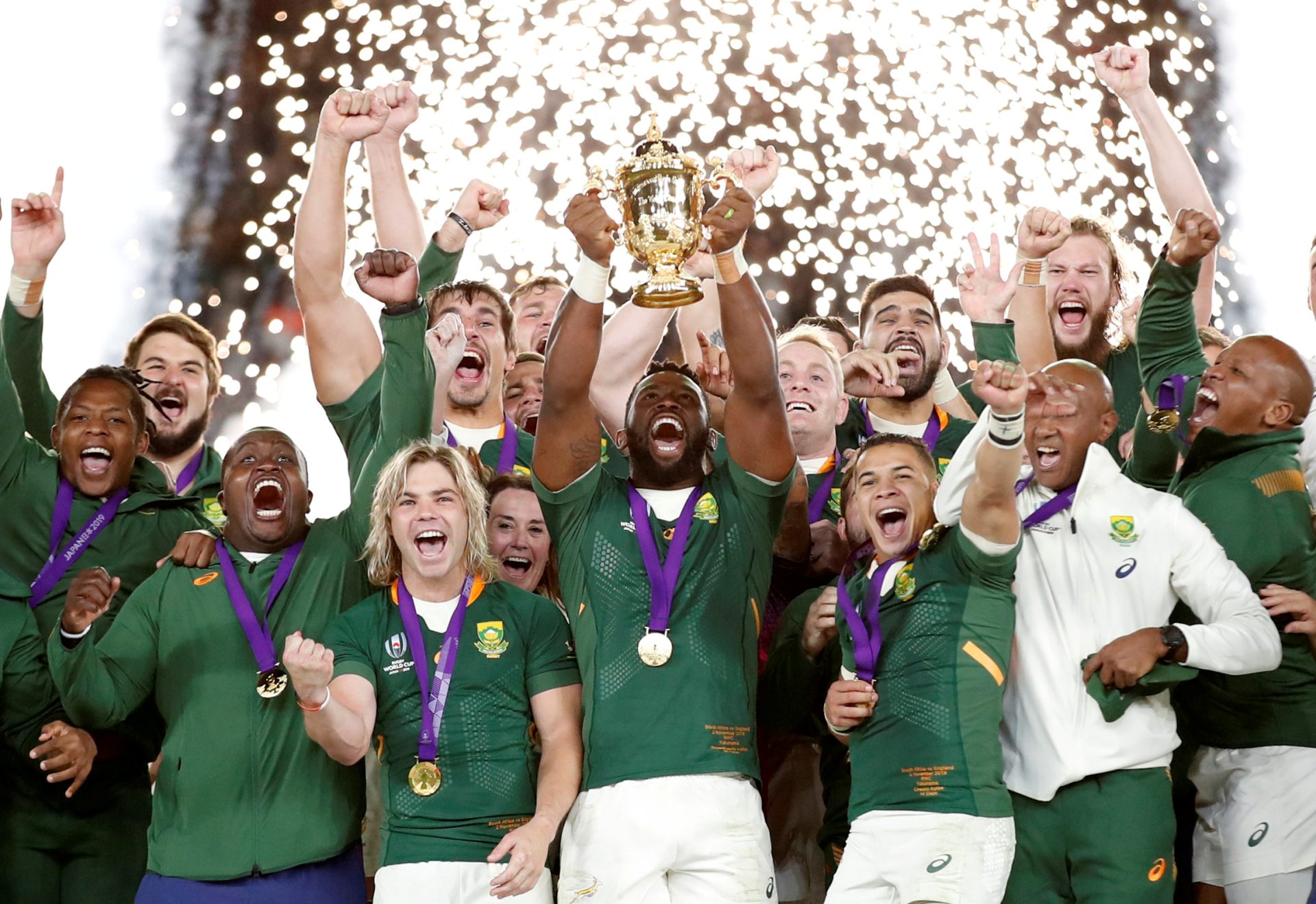
Is a new name on the World Cup just what rugby needs?
The tenth Men’s Rugby World Cup gets underway this week with the sport at a turning point, writes Paul Eddison in Paris.
It has now been 20 years since the format of the competition last changed, with 20 teams heading to France with dreams of lifting the Webb Ellis Cup.
To date, only four have lifted that trophy, southern hemisphere trio New Zealand, South Africa (both three times) and Australia (twice) and Europe’s lone champion, England in 2003.
This time around, there are two more teams with genuine reason to believe they can join that select group.
Ireland enter the tournament as the world’s number one side, Grand Slam champions earlier this year and as well-placed as any Ireland team ever to break the curse that has seen them fail to progress past the quarter-finals in any of the previous nine editions.
The other major contenders from the northern hemisphere are hosts France. Over the past four years, they have a winning record against every side they have faced, were also Grand Slam champions – in 2022 – and have lost just once on home soil.
To date, Les Bleus have reached the final three times and lost on each occasion, the only side to have made it to the big dance without ever lifting the trophy.
Each final appearance has come 12 years apart, with their last coming in 2011. A good omen perhaps? Beyond superstition, their bigger reason for confidence is the depth of talent in the squad and the presence of Antoine Dupont, arguably (and the consensus grows with every match) the world’s best player.
The problem for both Ireland and France is that they find themselves on the side of the draw which sees the world’s top five teams (France, New Zealand, Ireland, South Africa and Scotland) all in two pools. Only two from that five can reach the semi-finals, meaning that the quarter-finals may end up being more challenging than the final four.
That is an issue that has been partly caused by the draw for the pools taking place three years ago, not the first time that timing has led to a lopsided draw.
There is hope the timing may change for 2027 in Australia, with World Rugby Chairman Bill Beaumont hinting as much earlier this year.
The bigger question is whether anything else about the competition will change by the time it kicks off in Australia in four years.
World Rugby have rightly taken satisfaction from increases in participation figures in the sport in 2023 – recently announcing an 11% rise taking numbers to 8.46 million players across 132 national unions.
That top number is swiftly followed by an explanation that emerging rugby nations and women and girls’ rugby are the major driver of new growth in the game.
This is obviously great news, but it only lends credence to the suggestion that France 2023 should be the last World Cup with 20 teams.
We are already seeing improved performance from tier two nations ahead of the tournament. Fiji recorded a first-ever win over England at Twickenham and are the top-ranked side in Pool C ahead of established nations like Australia and Wales.
Joining the trio are Georgia, who beat both Italy and Wales in 2022 and have a thriving age-group set-up that has laid the foundation for a brighter future. And then you have Portugal, who qualified in dramatic circumstances thanks to a last-minute penalty to beat the USA in the final qualifier.
That the Americans missed out for only the second time, along with Canada, the only ever-presents who will be absent, is a concern for rugby in the region, but also a good reason to push for expansion. After all, the USA will host this tournament in eight years’ time.
Portugal have often been held up as a reason why expansion is dangerous after they shipped more than 100 points to New Zealand on their only previous appearance in the tournament in 2007. But that campaign was also a driving force in the growth of the game in the country and there are established nations who will look on with envy at the young talent they have out wide in their squad.
Similarly, in Pool D, England will be particularly wary of Samoa, denied a possible win over Ireland only by a wayward lineout in their final warm-up match.
While the world’s top four look to be a step above the rest, in general it is clear that the gap is closing between the sport’s traditional superpowers and those below them.
World Rugby should take credit for the £575 million invested in developing the sport over the past four years, but now is the opportunity to capitalise.
As much as it would be an important step for the World Cup to have a fifth name on the trophy – be it Ireland, France, Scotland or someone else, just as important is the idea that in 20 years’ time a team outside rugby’s established nations can challenge the world order.
To do so, they need the opportunity to appear on the biggest stage. Georgia and Portugal have both benefited from exposure on the biggest stage. Who is to say which country could be next?
Paul Eddison is the chief sports writer of Sportsbeat will be covering the Rugby World Cup in France